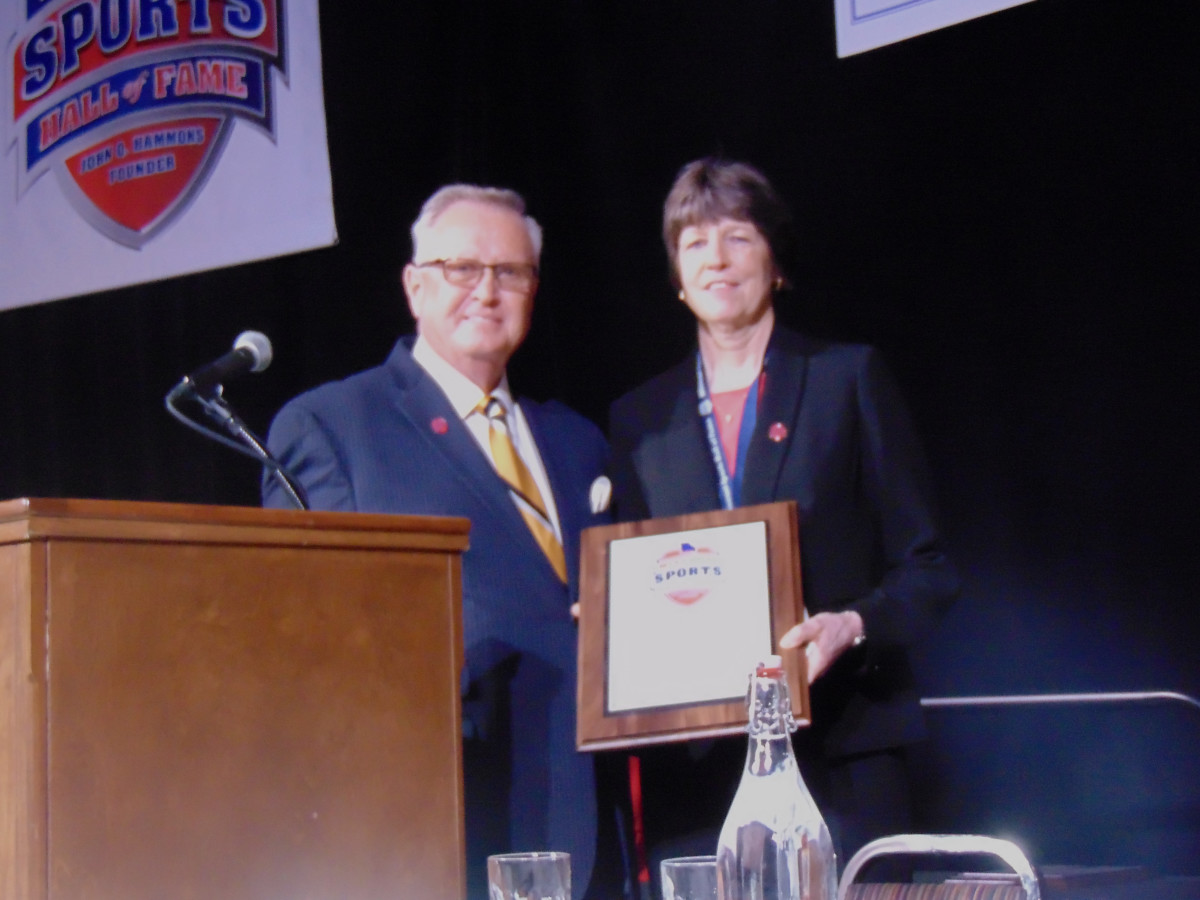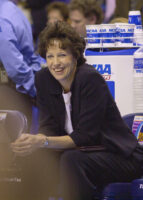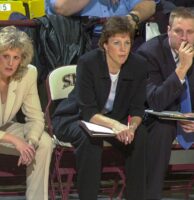Inductees
Lynnette Robinson

In August 1987, despite having never visited the Missouri State University campus, Lynnette Robinson pulled into Springfield with only a U-Haul and a dream.
Truth is, others might have gasped and high-tailed it back home, given that her new boss, recently hired Lady Bears basketball coach Cheryl Burnett, needed an assistant coach to help carry out what seemed like an impossible task. The mission? Oh, just create a nationally recognized program.
“I knew how passionate she was about basketball,” Robinson said of Burnett, a graduate assistant at the University of Illinois during Robinson’s senior year. “She had a vision to build a program. And I jumped at the chance to take that opportunity.”
Robinson spent the next 15 years playing an integral role in the rise of the Lady Bears, positioning the program for 316 wins and two Final Four berths. Which is why the Missouri Sports Hall of Fame proudly inducted Robinson with the Class of 2018.
Specifically, in Robinson’s time on campus the Lady Bears advanced to 10 NCAA Tournaments, won or tied for eight regular-season conference titles and captured five league tournament championships.
Perhaps most impressive was that Burnett and Robinson were the only full-time coaches until 1991, and former standout Karen Rapier joined the staff in 1994. They were together over the next decade.
Overall, Robinson was unafraid do the heavy lifting behind the scenes.
“It was a great opportunity,” Robinson said. “You learned how to do all facets of the program, from recruiting to ordering equipment to all the auxiliary aspects such as helping run summer camps.”
Just as notable was that Robinson played the role of, as she described it, the players’ advocate, providing both encouragement and a lending ear. It was to be expected, given Burnett’s legendary intensity and attention to detail.
“(Burnett) allowed me to grow both personally and professionally by what she expected,” Robinson said. “When she gave you something to do – and entrusted you with a specific task – she taught you how to think outside the box, to go above and beyond what was already being done.”
Basically, the Lady Bears were run like elite NCAA Division I programs and then became one.
Keep in mind, there weren’t office laptops on every desk or endless recruiting websites as there would become in the 2000s. Thus, Robinson had to roll up her sleeves and out-work everybody else.
No detail was left undone. Writing letters to recruits, making phone calls, watching potential student-athletes and arranging home and campus visits became regular 15-hour days (at least).
However, Robinson wanted it that way, in part because she knew she was helping women athletes capitalize on the opportunity afforded by the 1972 federal Title IX legislation.
That law created athletic opportunities for girls and women in public high schools and universities, and Robinson had experienced athletics before and after Title IX’s arrival.
Back home in Annawan, Ill., the high school didn’t start girls basketball until her freshman season. Still, Robinson and her twin sister, Lisa, earned scholarships to play for the University of Illinois.
“We (Lady Bears coaches) were so grateful that players were able to reap the benefits of all those who came before them,” Robinson said. “And we reminded our players of how those players paved the way.”
Robinson certainly paved the way for the next generation, too, as an assistant at Missouri State.
Take the 1992 Lady Bears Final Four team, for example. That season – and for the first time – the university raised the curtains in front of the bleachers of Hammons Student Center in order to accommodate large crowds. Even better, thousands of young girls in the Ozarks were inspired to play basketball.
Still, Robinson downplays her role, citing Dr. Mary Jo Wynn, Burnett, the community and especially the players for raising the Lady Bears’ profile.
“Every single player that was a member of our Lady Bears teams in some way had an important role in our program and led us to what we were able to achieve,” Robinson said. “Everybody can’t be an all-conference or an All-American. But we were very blessed to have kids that accepted roles. Everyone bought into the team aspect.”
What a career it was.
“The more that time goes by, that was just the best 15 years of my professional life,” Robinson said. “It was just magical.”









